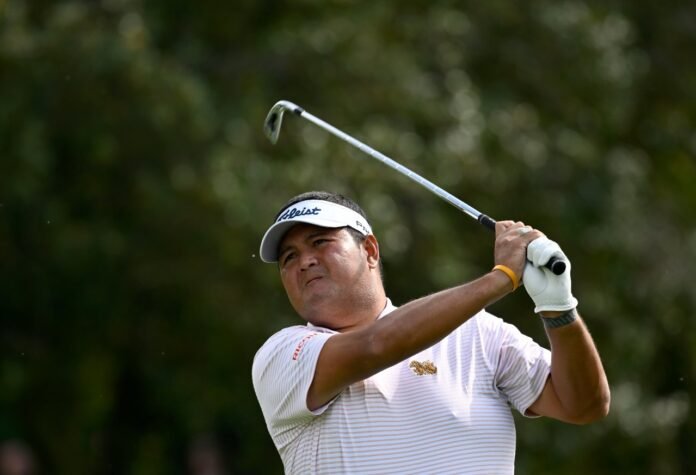
Thai star Jazz Janewattananond famously won the Kolon Korea Open in 2019, during his four-victory season when he topped the Asian Tour Order of Merit, but apart from that, Woo Jeong Hills Country Club, the event’s regular home since 2003, has been a notoriously difficult nut to crack for the best non-Koreans on the Asian Tour.
In the two editions of the Kolon Korea Open since the Asian Tour started co-sanctioning the event again in 2018, after a hiatus since 2008 and a two-year break during COVID, only six non-Korean born players have finished in the top 10, and nine inside the top 20.
Related: Phachara looks at adding to solid Asian Tour season in Korea
One of these players is Thailand’s Prom Meesawat – a proven winner in Korea having claimed the SK Telecom Open at Sky 72 in Incheon back in 2006. He finished tied 10th at Woo Jeong Hills in 2019, and feels he knows why playing in Korea is more difficult than other countries.
View this post on Instagram
“For myself, to play well in Korea, you have to be, especially at Woo Jeong Hills, very patient on the golf course,” said Prom.
“There are a lot of tough holes on the back nine. When the greens are getting firm and when it’s windy, the course plays hard compared to other course where we play tournaments in Korea. So that’s the key for me, to be patient when playing in Korea. If you make a mistake, you have to miss in the right spot.”
While the Shinhan Donghae Open, one of Korea’s other flagship events, has seen foreign winners such as Gaganjeet Bhullar (2016), Richard T. Lee (2017) and Jbe Krueger (2019), other than Jazz winning in 2019, you have to go all the way back to 2011 to find Rickie Fowler as a non-Korean winner. Is there something that makes this course more difficult to win on than others?
Said Prom: “Yeah, I think Woo Jeong Hills doesn’t really compare to other courses we play on in Korea. Like when we played the Ballantine’s Championship for example it was always cold, rainy and windy. But in normal conditions, Woo Jeong Hills is, I think, the toughest course.
View this post on Instagram
“In my opinion, I think there’s many holes where you can get in trouble. Like on number nine, you have to drive it really well. And then number eleven, when we played in the early years at Woo Jeong Hills, we actually played it as a par five. The last couple years we played that hole as a par four, which makes it a lot more difficult.
“The par threes on the back nine, 13 and 16, are difficult, and number 16, 17 and 18 are all tough finishing holes. There are a lot of holes that if you hit one bad shot you can get in big trouble. Yeah, there’s a lot more trouble than on the other courses.
“For example, at Nam Seoul where we play the GS Caltex Maekyung Open, if you stay below the hole on approach shots you are fine. That course plays a bit shorter, but if you miss on the high side or the wrong side, you can still get in trouble.
“But I think Woo Jeong Hills is like everywhere, if you miss a tee shot or if you miss the green, you still need to miss in a good spot. And the course plays longer than Nam Seoul.”
The two-time Asian Tour winner has his strategy mapped out for this week and what the key to his success at the Kolon Korea Open should be.
He adds: “For me, just hit the tee shots into a good position, and then try to make birdie on the easy holes like hole number one, two, five, six, and eight. On the front nine we can make birdies, but then the back nine everyone knows it’s tough. Try to score on the front nine if it’s possible, then just play more defensive on the back nine. It depends on the green conditions as well. If they are firm, it’s gonna be very, very tough I think.”
View this post on Instagram
The 37-year-old Thai has a good memory from his last visit to Woo Jeong Hills in 2019 and is feeling good about his game heading into the championship, which starts tomorrow.
“The putt I holed on the 18th on Sunday was a really long putt, the pin was in the back left and I was in the right centre about 30 feet away from the hole. When I holed the putt there, that was a good finish and it was on television as well,” he said.




